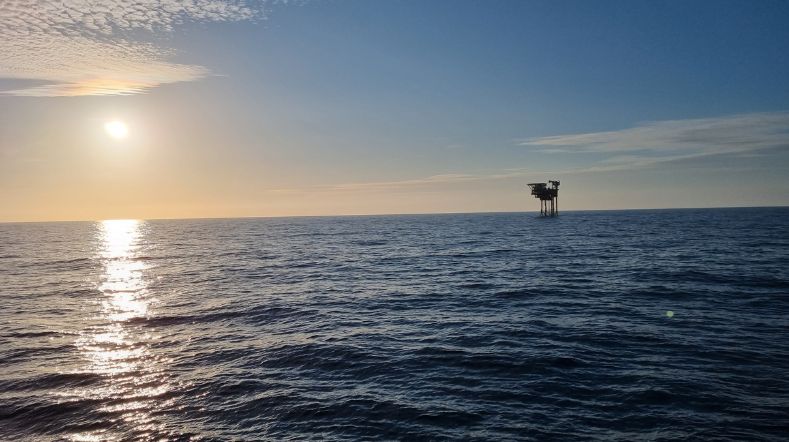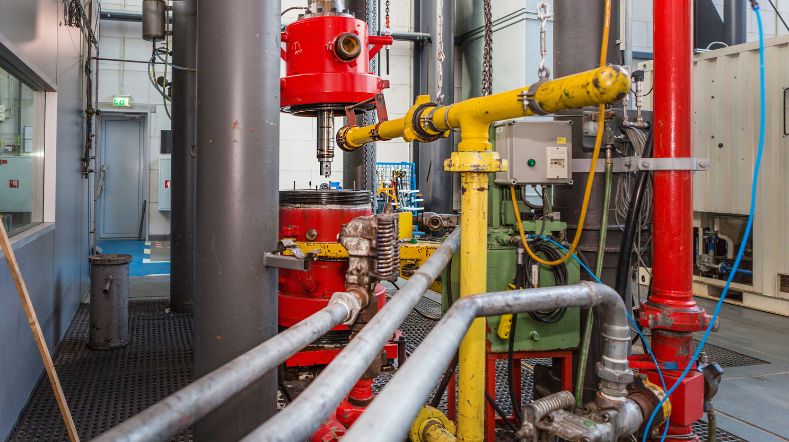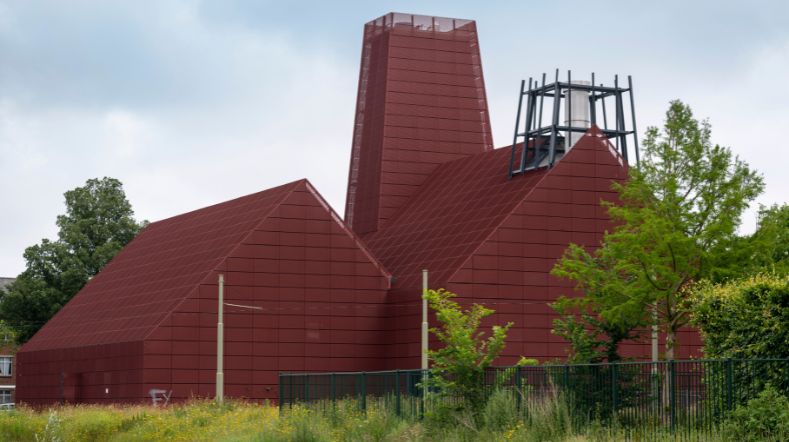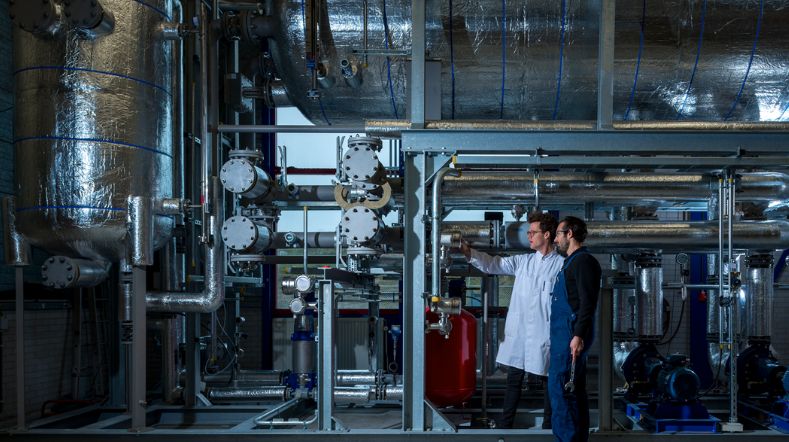Open doors to Dutch subsurface research labs and data
The EPOS-eNLarge research project, a joint effort by Utrecht University, TU Delft, KNMI, and TNO Geological Survey of the Netherlands, is opening the doors to its scientific laboratories and extensive geophysical facilities. This collaboration aims to provide open access to researchers, offering valuable insights into the Earth's subsurface dynamics, with a particular focus on sustainable and safe usage.
The project encompasses a spectrum of cutting-edge facilities, including an Earth Simulation Lab, a geothermal well, and an earthquake data center. Access is not limited to infrastructure alone; researchers are granted entry to data repositories containing valuable information on the Dutch subsurface. By sharing these resources openly, the consortium seeks to enhance global knowledge on subsurface interactions and contribute to the development of safe and sustainable practices.
Importance energy transition
The utilization of the subsurface has become pivotal in addressing the current climate crisis. Strategies to reduce greenhouse gas emissions increasingly rely on activities beneath the Earth's surface, such as extracting renewable energy from geothermal sources, storing carbon dioxide, and transitioning away from fossil fuels. However, the incomplete understanding of the subsurface's response to these activities poses challenges to their widespread implementation.
EPOS-eNLarge emerges as a solution, aiming to bridge the gap in our comprehension of natural and human impacts on the subsurface. Dr. Suzanne Hangx, an assistant professor at the High Pressure and Temperature Laboratory at Utrecht University, emphasizes the importance of collaboration in achieving a comprehensive understanding. "Tapping into each other’s strengths, we can get a physics-based understanding of what is happening in the subsurface at the scale of individual grains in our rocks and extrapolate that to the kilometer-scale."
TNO Centre for Sustainable Geo-energy
Thanks to the laboratory research carried at Utrecht University on centimeter-sized samples, the cluster has learnt a lot about some of the micro-processes that control the behaviour of rocks.

“At the TNO Rijswijk Centre for Sustainable Geo-energy, we can go a step further, and explore what happens in the subsurface when we extract or inject fluid at unprecedented 1-400 meter scales.”
The Rijswijk Centre for Sustainable Geo-energy is a unique open innovation lab for improving geo-energy technologies to accelerate the energy transition. There is a particular focus on geothermal energy, an increasingly important renewable energy source, and subsurface storage of heat, hydrogen and CO2.
The facilities are available for full-scale testing and demonstration of new drilling techniques, flow, and materials under high pressure and temperature and as such represent the largest scale lab experiments in EPOS eNLarge. Within the project, RCSG will develop and expand its facilities even further to bridge the applied research at the centre to the academic research at the universities.
Alexandros Daniilidis, assistant professor of Geothermal Engineering at TU Delft, highlights the difficulty of validating models at kilometer-scale relevant for subsurface geo-energy applications. “While we can validate small-scale models through laboratory tests and controlled settings, validating models at the km-scale relevant for subsurface geo-energy applications is very difficult, and requires large-scale infrastructure.”
“The results of this collaboration can ultimately increase the efficiency and safety of geothermal and other subsurface projects,” adds Ronald Pijnenburg, project manager of the research infrastructure.
TNO Rijswijk Centre for Sustainable Geo-energy
Read more about our innovation lab for geo-energy.
Open access to research facilities and data
EPOS-eNLarge will expand the data infrastructure initially set up in EPOS-NL to ensure central accessibility of Dutch solid Earth scientific data at the international level. A part of the Geological Survey of the Netherlands (TNO) data of the Dutch subsurface, currently provided through NLOG and DINOloket will gradually be made available in the centralized EPOS data access portal (EPOS.nl) over the next few years. Particular attention is given to providing digital access to the subsurface core archives data collection (Core house), well information and geological maps and models.
EPOS-eNLarge opens calls twice per year, welcoming proposals for free-of-charge access to any of the cluster’s facilities - the Multi-scale Imaging and Tomography (MINT) facilities at Utrecht University (MINT-UU) and Delft University of Technology (MINT-TUD), the ESL Tectonic Modelling (Tec-)Lab, ESL High Pressure and Temperature (HPT) Lab, and Porous Media Lab at Utrecht University, the Delft Petrophysics Lab at Delft University of Technology, and the Rijswijk Centre for Sustainable Geo-energy and Core house of the TNO geological survey. The next call opens in February 2024.
Data generated at these facilities are made publicly available through the EPOS multi-disciplinary data portal, therefore ensuring the efficiency and transparency of (inter)national earth scientific research.
About EPOS-eNLarge
EPOS-eNLarge is a new Roadmap for Large-Scale Research Infrastructure, funded by the Dutch Research Council (NWO). The project, a collaboration between Utrecht University, Delft University of Technology, the Royal Netherlands Meteorological Institute (KNMI), and the TNO Geological Survey of the Netherlands, provides the missing link needed to apply our understanding of micro-processes in the subsurface at the kilometer-scale. It builds on the research project EPOS-NL, a Dutch national research infrastructure for research on geo-resources.
Get inspired
CRM materials and processes


TNO–SodM–NIOZ: ‘Methane emissions in the North Sea often linked to shallow natural gas’


Heat


Geothermal energy: sustainable heat from the subsurface


Smarter storage: how TNO optimises thermal energy storage



